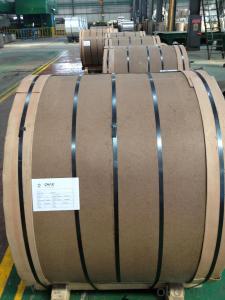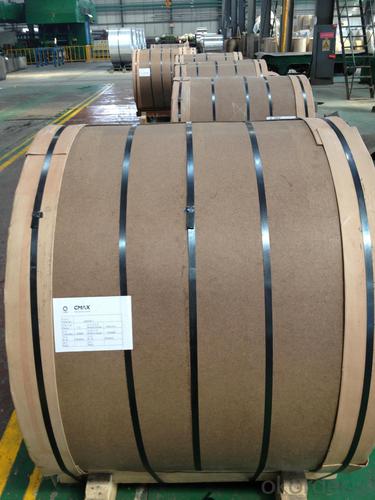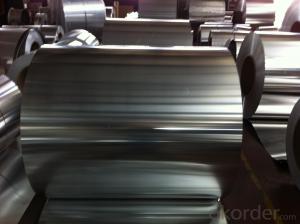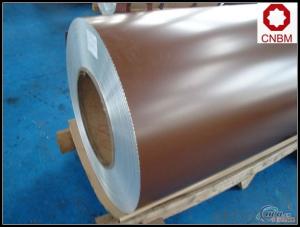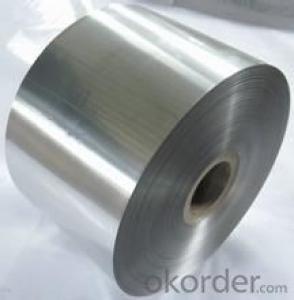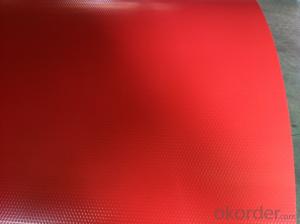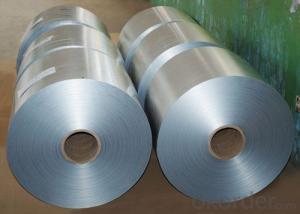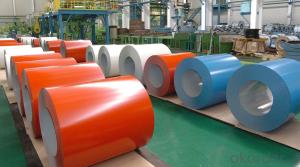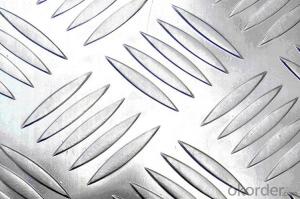Ruud Aluminum Coils - 2.4mm Aluminium Coil
- Loading Port:
- China Main Port
- Payment Terms:
- TT OR LC
- Min Order Qty:
- -
- Supply Capability:
- -
OKorder Service Pledge
Quality Product, Order Online Tracking, Timely Delivery
OKorder Financial Service
Credit Rating, Credit Services, Credit Purchasing
You Might Also Like
Specifications
1:mill finish aluminum coil
2:ISO9001,SGS,CCS test certificate
3:Width can reach 2500mm.
4:DC and CC material is available.
mill finish aluminum coil
| Product | Aluminum Coil |
| Alloy | 1050, 1060, 1070,1080,1085,1100, 1200,1145 3003, 3004,3005, 3102,3103,3104,3105, 3A21 5052,5052A,5657, 5754,5082,5083,6061,7075,8006,8011,8079 |
| Temper | O, H12, H14, H16,H18 H22,H24,H26,H28,H32,H34,H36,H38 |
| Thickness | 0.2mm-7.0mm(Or Customer's requirement) |
| Width | Under 2500mm |
| Lead Time | Within 20 days after receiving deposit |
| Packing | Standard Exporting wooden pallets |
| Surface: | Bright & Smooth Surface, Free from defects like white Rust, Oil Patch, Edge Damage. |
| Application | PP cap stock, hot rolled thick plate, PS base plate, aluminum curtain wall base plate, the traffic sign ,air-conditioner heat and exchangers, food container, household foil, pharmaceutical packing, cigarettes packing, |
- Q: Can aluminum coils be used in aerospace heat exchangers?
- Yes, aluminum coils can be used in aerospace heat exchangers. Aluminum is a commonly used material in the aerospace industry due to its lightweight and high thermal conductivity properties. Heat exchangers are crucial components in aerospace systems, responsible for transferring heat from one medium to another. Aluminum coils are highly effective in conducting heat, making them suitable for use in aerospace heat exchangers. Additionally, aluminum is corrosion-resistant, which is important in the harsh environments encountered in aerospace applications. Its low density also contributes to fuel efficiency by reducing the overall weight of the aircraft. Therefore, aluminum coils are a preferred choice for aerospace heat exchangers due to their excellent thermal conductivity, lightweight properties, and resistance to corrosion.
- Q: Can aluminum coils be used for heat transfer applications?
- Yes, aluminum coils can be used for heat transfer applications due to their excellent thermal conductivity properties.
- Q: This question asks for a comparison of various types of insulation materials, highlighting their unique characteristics and differences.
- <p>Different types of insulation materials vary in their properties such as thermal resistance (R-value), fire resistance, moisture resistance, and environmental impact. Fiberglass is a common, cost-effective option with good thermal resistance but can be irritating to the skin and respiratory system. Cellulose insulation is made from recycled paper and has good sound absorption but may be less fire resistant. Foam insulation like spray foam offers excellent insulation and air sealing but can be more expensive and harder to install. Mineral wool is fire-resistant and durable but may be less thermally efficient. Each type has its advantages and drawbacks, and the choice depends on factors like cost, environmental impact, and specific insulation needs.</p>
- Q: What are the color options available for aluminum coils?
- The color options available for aluminum coils are typically vast and varied, ranging from standard colors like white, black, and silver to a wide array of custom colors and finishes. Some popular options include metallic, matte, gloss, and textured finishes, allowing for endless possibilities in terms of design and aesthetics.
- Q: I have the Samp;W Mamp;P 15 rifle and was wondering if I should oil the exterior of the rifle. The receiver material is 7075 T6 Aluminum and the finish is Hard Coat Black Anodized (specifications on website). Any advice or tips are welcome! Thanks!
- As chris w said, aluminum doesn't rust and anodizing prevents corrosion. Have you considered simply reading the manual that comes with your rifle? The manual includes instructions for cleaning and care, and if you don't have one, you can download it from SW's website.
- Q: How do aluminum coils withstand extreme weather conditions?
- Due to the unique properties of aluminum, aluminum coils can endure harsh weather conditions. Firstly, aluminum's lightweight nature allows it to remain flexible and resistant to bending or warping when faced with strong winds or heavy snow loads. As a result, aluminum coils are less likely to be damaged during extreme weather events like hurricanes or blizzards. Moreover, aluminum possesses a high resistance to corrosion. When exposed to air, it forms a protective oxide layer on its surface, preventing rusting or deterioration caused by moisture or severe weather conditions. This protective layer acts as a barrier against elements such as rain, snow, or saltwater, making aluminum coils highly durable and long-lasting. Additionally, aluminum exhibits high thermal conductivity, enabling it to efficiently dissipate heat. This property ensures that aluminum coils effectively transfer heat away from the system, preventing overheating and potential damage during hot weather conditions. Furthermore, the efficient dissipation of heat contributes to the energy efficiency of aluminum coils. Lastly, aluminum is a non-magnetic material, rendering it unaffected by electromagnetic interference or lightning strikes. This quality makes aluminum coils safe and dependable in areas prone to electrical storms or high levels of electromagnetic activity. To summarize, aluminum coils are designed to endure extreme weather conditions due to their lightweight, corrosion-resistant, thermally conductive, and non-magnetic properties. These characteristics make aluminum coils highly durable, dependable, and suitable for various applications, including HVAC systems, automotive cooling, and electrical wiring.
- Q: This question asks for the method to calculate the weight of an aluminum coil given its size.
- <p>To calculate the weight of an aluminum coil, you need to know its dimensions and the density of aluminum. The formula to calculate the weight is: Weight = Volume 脳 Density. First, determine the volume of the coil by multiplying its length (L), width (W), and thickness (T): Volume = L 脳 W 脳 T. The density of aluminum is approximately 2.7 grams per cubic centimeter (g/cm鲁). Convert the volume to cubic centimeters if it's not already. Then, multiply the volume by the density to get the weight in grams. To convert grams to kilograms, divide by 1000. This will give you the weight of the aluminum coil.</p>
- Q: Can aluminum coils be used in the aerospace industry?
- Yes, aluminum coils can be used in the aerospace industry. Aluminum is widely used in the aerospace industry due to its lightweight, high strength, and good corrosion resistance properties. Aluminum coils are commonly used in various aerospace applications such as aircraft fuselage, wings, engine parts, and structural components.
- Q: I wrap everything with aluminum foil and bake it in the oven -- fish, meat, vegetables. Is this really safe? Or safe when done occasionally? Or should I find a new way?
- Aluminum Foil Safety
- Q: What are the safety regulations that need to be followed while using aluminum coil?
- <p>Yes, there are safety regulations for using aluminum coil. These include ensuring proper ventilation to prevent the buildup of aluminum dust, which can be a fire hazard. Protective equipment such as gloves and eyewear should be worn to avoid skin and eye contact with the material. Additionally, it's crucial to follow guidelines for handling and storing aluminum coils to prevent accidents, such as ensuring they are not damaged or exposed to extreme temperatures. Compliance with local and industry-specific safety standards is also essential to maintain a safe working environment.</p>
Send your message to us
Ruud Aluminum Coils - 2.4mm Aluminium Coil
- Loading Port:
- China Main Port
- Payment Terms:
- TT OR LC
- Min Order Qty:
- -
- Supply Capability:
- -
OKorder Service Pledge
Quality Product, Order Online Tracking, Timely Delivery
OKorder Financial Service
Credit Rating, Credit Services, Credit Purchasing
Similar products
Hot products
Hot Searches
Related keywords
